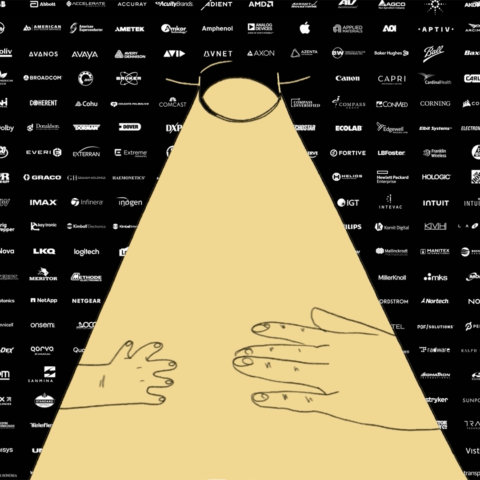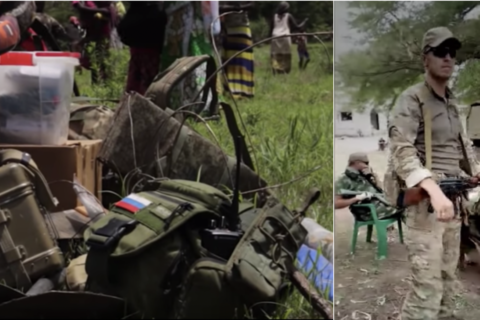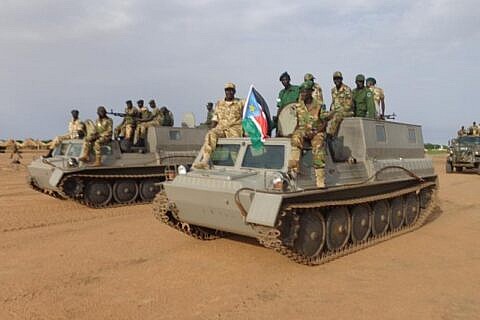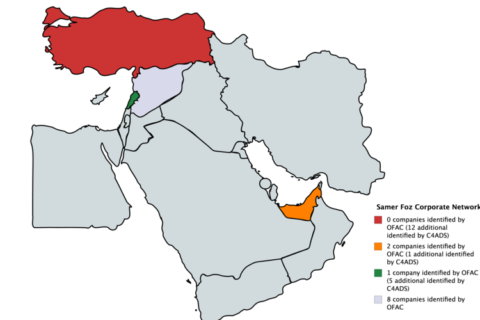Fractured Veins

In this analysis, we examine and map the relationships between Xinjiang Uyghur Autonomous Region-based mines reliant on forced labor and global networks of finance and trade — including hundreds of American companies and the index fund portfolios of several major asset management firms.
Executive Summary #
The world is increasingly exposed to the mining industry in the Xinjiang Uyghur Autonomous Region (XUAR), with gold and other minerals extracted from the region linked to global supply chains and investment. These minerals, as with other products manufactured or processed in XUAR, are at high risk of being produced through forced labor or in conditions of human rights violations.
Using publicly available mining licenses and corporate data, C4ADS mapped the mining industry in XUAR, connecting mines to their ultimate beneficial owners. While a mining license is typically owned by a company registered in the region, these companies are often subsidiaries of large state-owned corporations, many headquartered outside of XUAR. These massive mining corporations are among the People’s Republic of China’s (PRC’s) most valuable, and frequently have one or more of their member companies publicly listed on the PRC or Hong Kong stock exchanges. An examination of the case of gold extraction in the region provides just one example of not only safety infractions and environmental damage caused by the industry, but also considerable evidence of forced labor and other human rights violations taking place in XUAR mines.
Active and Prospecting Mine Licenses in XUAR (as of 2023)
Despite this, the mining industry in the Uyghur region remains entangled with global commodity markets and international finance. In investigating the financial linkages and supply chains that enable crimes against Uyghurs and Turkic peoples, C4ADS found the XUAR gold economy touches global systems through the following pathways:
- Global Supply Chains: U.S. conflict mineral reporting indicates that hundreds of major U.S. companies like Mattel, Macy’s, Tesla, Apple, and NVIDIA are directly or indirectly exposed to suppliers that source gold from companies with XUAR-based mines that exhibit risk indicators of forced labor. This may violate the Uyghur Forced Labor Prevention Act (UFLPA) or Organisation of Economic Co-operation and Development (OECD) responsible sourcing guidelines.
- Investments: Major asset management firms’ index fund portfolios include companies that own mines in XUAR associated with forced labor and human rights violations. This exposes their clients, including major institutional investors and individuals, to human rights violations in the Uyghur region. In addition, companies with mines in XUAR that exhibit risk indicators of forced labor trade on the Shanghai Gold Exchange, including international members like JPMorgan Chase, UBS, and Standard Chartered, are positioned to profit from the gold as it is held as a store of value to guarantee investments.
- Responsible Sourcing Certification Schemes: Major Chinese mining companies with a footprint in XUAR have successfully obtained accreditation by the London Bullion Market Association, conformant status from the Responsible Minerals Initiative, or are members of the World Gold Council. This may encourage global buyers and investors, including those acting outside those fora, to trust the provenance of the gold and conduct purchases or investments that facilitate human rights crimes.
While this report focuses on gold, it is but one of the many globally traded minerals produced by the XUAR mining sector that is entangled with the Chinese government’s violent campaign of repression against Turkic peoples. The persistence of these pathways inhibits global efforts to address the human rights violations in the region, particularly the forced labor and associated assimilation campaign carried out in large part by PRC corporate actors. Exposure to these corporate actors via trade or investment connections places numerous global companies at risk of profiting from forced labor. For U.S. importers, this may violate the UFLPA.
Armed with C4ADS’ comprehensive mapping of the mining industry in XUAR, corporate buyers, sellers, and users of minerals; institutional and individual investors, and U.S. and international industry regulators, policymakers, and law enforcement all have a decisive role in reducing ongoing capital flows to PRC mining companies that perpetrate and support human rights abuses against Turkic peoples in the Uyghur region.

Watch the Video

Download Fractured Veins

Download Fractured Veins in Chinese






